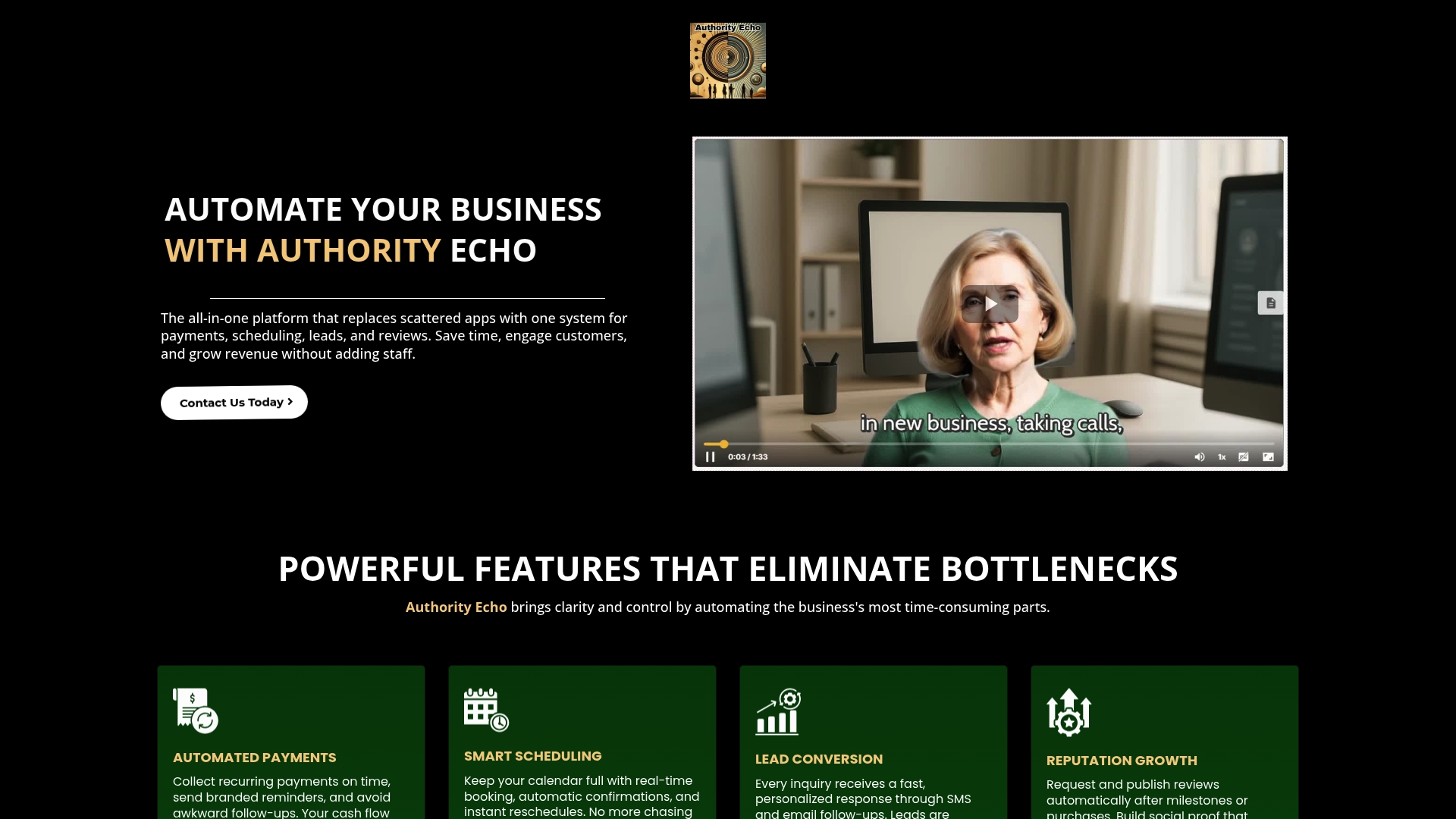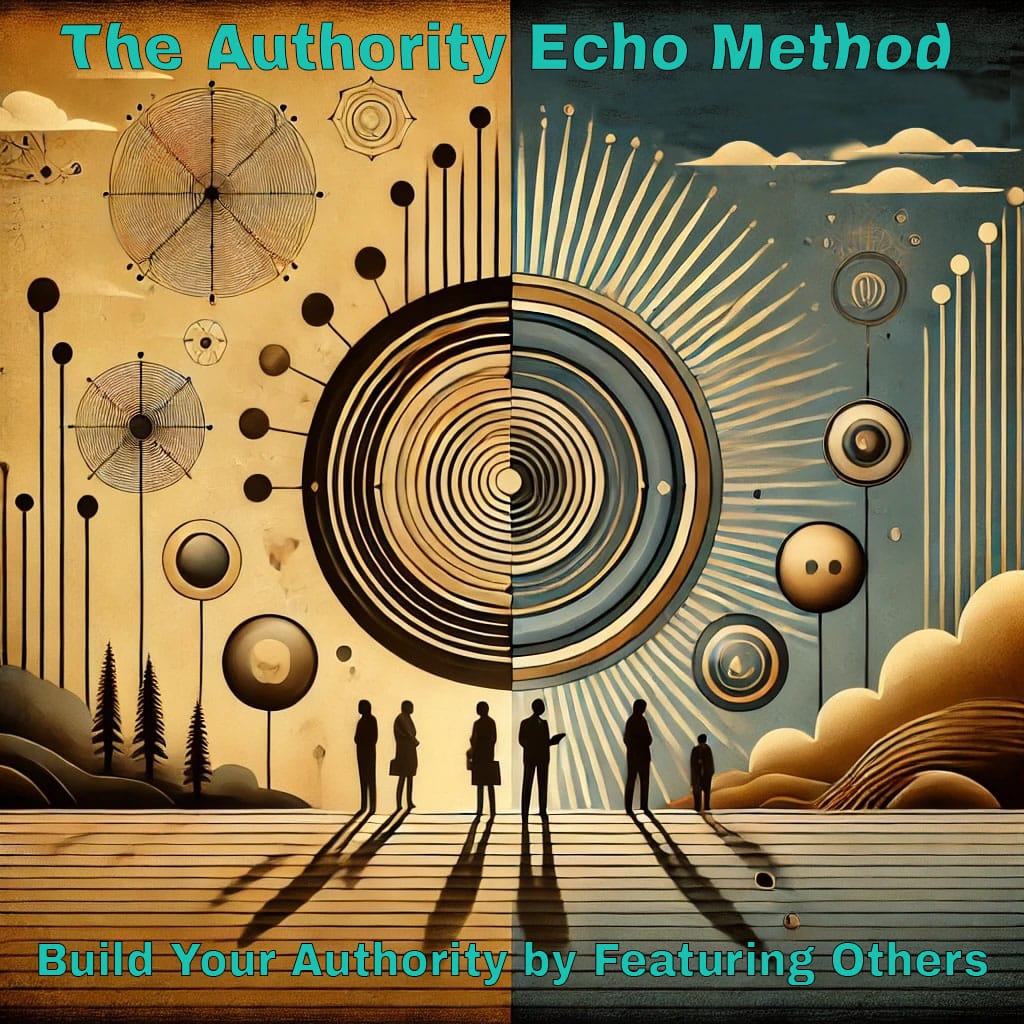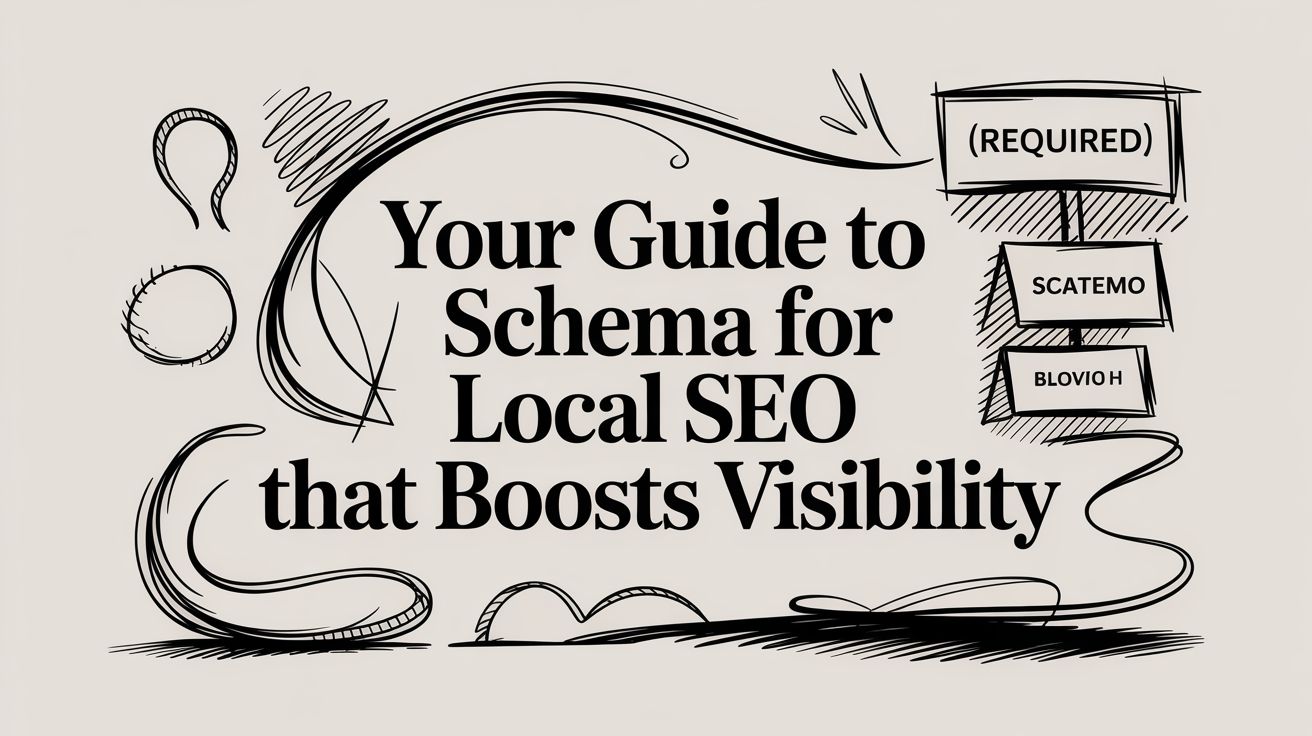7 Effective Lead Generation Strategies for 2025

Lead generation can make or break a business. While most companies chase larger audiences and cast a wide net, the real power lies in focus. Research shows that professional networks account for up to 85% of new business opportunities but very few actually build meaningful connections or create truly targeted messaging. The truth is, the most successful strategies do not rely on being everywhere at once. They depend on understanding exactly who you want to reach and why, setting you up for results that go far beyond the usual marketing noise.
Table of Contents
- Understanding Your Target Audience
- Leveraging Social Media Platforms
- Creating High-Quality Content
- Utilizing Email Marketing Campaigns
- Implementing Seo Best Practices
- Networking And Building Partnerships
- Analyzing And Optimizing Strategies
Quick Summary
| Takeaway | Explanation |
|---|---|
| Understand Your Target Audience | Deep audience research enhances precision in messaging and lead attraction. |
| Leverage Multi-Platform Social Media | Tailor strategies for each platform to maximize engagement and lead generation potential. |
| Create High-Quality, Value-Driven Content | Content should solve problems, establish authority, and engage your target audience. |
| Utilize Personalized Email Marketing | Segmented and personalized emails greatly improve engagement and conversion rates. |
| Track Metrics for Strategic Optimization | Regularly analyze performance data to refine and enhance lead generation efforts. |
1: Understanding Your Target Audience
Successful lead generation begins with a profound understanding of your target audience. This foundational step determines the effectiveness of all subsequent marketing strategies. Knowing exactly who you want to attract helps you craft precise, resonant messaging that cuts through the noise and speaks directly to potential customers.
Audience research involves more than basic demographics. You need to delve into psychographics, understanding the motivations, challenges, and aspirations of your ideal clients. According to Gartner Research, creating a comprehensive customer profile requires analyzing multiple dimensions beyond surface level characteristics.
Key elements to investigate in your target audience include:
- Behavioral patterns: What platforms do they use?
- Pain points: What problems are they desperately seeking solutions for?
- Purchase triggers: What motivates them to make buying decisions?
- Communication preferences: How do they prefer to receive information?
Utilizing tools like customer surveys, social media analytics, and direct interviews can provide nuanced insights into your audience’s world. HubSpot’s Marketing Research emphasizes that deep audience understanding transforms generic marketing into precision-targeted communication.
Segmentation is crucial in this process. Break down your broader audience into specific personas representing different customer types. Each persona should include detailed characteristics like professional role, typical challenges, income range, and decision making patterns. This granular approach allows you to develop highly personalized lead generation strategies that resonate on an individual level.
Remember, effective lead generation is not about casting the widest net but about casting the most strategic and precise net possible. By investing time in understanding your target audience, you create a robust foundation for attracting high quality leads that are genuinely interested in your offerings.
2: Leveraging Social Media Platforms
Social media platforms have transformed from simple communication channels to powerful lead generation ecosystems. Modern businesses cannot afford to ignore these digital landscapes where potential customers spend significant portions of their day. Each platform offers unique opportunities for connecting with and attracting prospective leads.
Sprout Social’s 2023 Index reveals that strategic social media marketing can dramatically increase brand visibility and engagement. The key is understanding how to strategically navigate different platforms to maximize lead generation potential.
Effective social media lead generation requires a multi platform approach. Different platforms serve different audience segments and require tailored strategies:
- LinkedIn: Perfect for B2B professional networking and industry connections
- Instagram: Ideal for visually driven brands targeting younger demographics
- Facebook: Broad reach with robust advertising targeting capabilities
- Twitter: Quick communication and thought leadership positioning
Content strategy plays a critical role in social media lead generation. High quality, value driven content attracts potential leads organically. This means creating posts that solve problems, answer questions, and provide genuine insights rather than pure promotional material.
Social Media Examiner’s Research suggests that interactive content generates significantly higher engagement rates. This includes live videos, polls, quizzes, and interactive stories that encourage audience participation and data collection.
Paid advertising amplifies organic efforts. Platforms like Facebook and LinkedIn offer sophisticated targeting options that allow businesses to reach extremely specific audience segments. You can target leads based on job titles, interests, behaviors, and detailed demographic information.
Consistent engagement is crucial. Responding to comments, participating in discussions, and maintaining an active presence builds trust and positions your brand as approachable and customer centric. Social listening tools can help track mentions, understand audience sentiment, and identify potential lead generation opportunities in real time.
3: Creating High-Quality Content
Content is the cornerstone of effective lead generation strategies, serving as a powerful magnet that attracts and nurtures potential customers. High quality content goes beyond simple information delivery it establishes your brand as a trusted authority in your industry.
Content Marketing Institute’s 2023 Report emphasizes that businesses producing consistent, valuable content experience significantly higher lead conversion rates. The goal is to create content that solves real problems and provides actionable insights for your target audience.
Strategic content development involves understanding your audience’s primary challenges and creating materials that directly address those pain points. This approach transforms content from a marketing tactic to a genuine value proposition.
Key content types that drive lead generation include:
- Educational blog posts that provide in depth solutions
- Comprehensive whitepapers exploring complex industry challenges
- Video tutorials demonstrating practical skills
- Infographics that simplify complex information
- Case studies showcasing real world success stories
SEMrush’s Content Marketing Research reveals that multimedia content generates 300% more engagement compared to text only materials. This means diversifying your content format is crucial for capturing audience attention and generating quality leads.
Search engine optimization plays a critical role in content visibility. Strategically incorporating relevant keywords helps your content rank higher in search results, increasing organic traffic and potential lead opportunities. However, avoid keyword stuffing focus on natural, reader friendly language that provides genuine value.
Content distribution is equally important as creation. Sharing your content across multiple channels including social media, email newsletters, and industry forums expands your reach and increases the likelihood of attracting potential leads.
Remember that authenticity drives connection. Your content should reflect your brand voice, demonstrate expertise, and provide clear, actionable insights that differentiate you from competitors. When potential leads recognize the unique value you offer, they are more likely to engage and eventually convert.
4: Utilizing Email Marketing Campaigns
Email marketing remains one of the most powerful lead generation tools in the digital landscape, offering direct communication with potential customers. Unlike social media platforms where algorithms control visibility, email provides a guaranteed channel to reach your audience.
Campaign Monitor’s 2023 Research indicates that email marketing generates an average return of $42 for every $1 spent, making it an incredibly cost effective strategy for businesses of all sizes.
Successful email marketing campaigns require sophisticated segmentation and personalization strategies. Generic mass emails are no longer effective. Modern subscribers expect tailored content that speaks directly to their specific needs and interests.
Key elements of high performing email campaigns include:
- Compelling subject lines that spark curiosity
- Personalized content addressing specific audience segments
- Clear and prominent call to action buttons
- Mobile responsive design
- Consistent brand messaging
HubSpot’s Email Marketing Analysis reveals that personalized email subject lines can increase open rates by 26%. This underscores the importance of moving beyond generic communication and creating highly targeted messaging.
Automated email sequences provide a strategic approach to nurturing leads. These pre designed workflows can guide potential customers through different stages of the buying journey, delivering relevant content at precise moments. Triggered emails based on specific user behaviors can significantly improve engagement and conversion rates.
Technical considerations are crucial in email marketing. Maintaining a clean email list, ensuring high deliverability rates, and complying with data protection regulations like GDPR are essential. Regular list maintenance and segmentation help maintain high quality subscriber interactions.
Advanced email marketing strategies involve using sophisticated tracking and analytics tools. By monitoring metrics like open rates, click through rates, and conversion rates, businesses can continuously refine their approach and improve lead generation effectiveness.
5: Implementing SEO Best Practices
Search Engine Optimization transforms your online visibility, acting as a critical bridge between potential leads and your business. Modern SEO goes far beyond keyword stuffing it’s about creating a comprehensive strategy that attracts and engages your target audience.
Google’s Search Quality Evaluator Guidelines emphasize the importance of creating valuable, user focused content that genuinely addresses user needs. This approach not only improves search rankings but also increases the likelihood of converting visitors into qualified leads.
Successful SEO requires a multifaceted approach that combines technical optimization with high quality content creation. Search engines prioritize websites that offer exceptional user experiences and provide clear, relevant information.
Key SEO strategies for lead generation include:
- Long tail keyword targeting for specific audience segments
- Local SEO optimization for geographic relevance
- Mobile responsive design
- Fast page loading speeds
- Comprehensive content that answers user questions
Moz’s SEO Research indicates that websites ranking on the first page of Google receive 95% of web traffic. This statistic underscores the critical importance of developing a robust SEO strategy that positions your content for maximum visibility.
Technical SEO elements play a crucial role in lead generation. Website structure, meta descriptions, and internal linking create a robust framework that helps search engines understand and rank your content effectively. Implementing schema markup can further enhance your website’s search visibility by providing clear signals about your content’s context.
Content quality remains the cornerstone of effective SEO. Producing in depth, authoritative content that comprehensively addresses user queries signals to search engines that your website provides genuine value. This approach naturally attracts high quality leads who are actively seeking solutions in your industry.
Constant adaptation is key in SEO. Search engine algorithms continuously evolve, requiring businesses to stay informed about the latest optimization techniques and user behavior trends. Regular content audits, performance tracking, and strategic adjustments ensure your lead generation efforts remain effective and competitive.
6: Networking and Building Partnerships
Networking transcends traditional business connections, transforming into a strategic approach for generating high quality leads. Building meaningful professional relationships opens doors to opportunities that traditional marketing strategies cannot access.
Forbes Business Development Council reveals that professional networks can generate up to 85% of business opportunities through referrals and collaborative partnerships.
Effective networking requires a genuine approach focused on mutual value creation. It’s not about collecting contacts but developing authentic professional relationships that benefit all parties involved.
Strategic networking channels include:
- Industry conferences and events
- Professional association memberships
- Online networking platforms like LinkedIn
- Local business meetups
- Collaborative webinars and virtual summits
Harvard Business Review’s Networking Research demonstrates that successful networkers prioritize relationship quality over quantity. Meaningful connections are built on trust, shared values, and genuine interest in mutual professional growth.
Partnerships with complementary businesses can dramatically expand lead generation potential. By creating strategic alliances, companies can cross pollinate their audiences, accessing new market segments without direct competition.
Digital platforms have transformed networking dynamics. Virtual events, webinars, and online communities provide unprecedented opportunities to connect with potential leads and industry experts globally. These platforms eliminate geographical barriers and enable more diverse, extensive networking.
Building a robust professional network requires consistent effort. Providing value before expecting returns is crucial. This might involve sharing insights, making introductions, or offering support to your professional connections. Such generosity builds reputation and attracts high quality leads organically.
Tracking and nurturing professional relationships through Customer Relationship Management tools can help systematize your networking efforts. By documenting interactions, follow ups, and potential opportunities, businesses can transform random connections into strategic lead generation assets.
7: Analyzing and Optimizing Strategies
Data driven decision making transforms lead generation from a guessing game into a precise science. Continuous analysis and strategic optimization ensure your lead generation efforts remain effective and adaptable in a rapidly changing business landscape.
McKinsey & Company’s Digital Transformation Research highlights that companies utilizing advanced analytics are 23 times more likely to acquire customers and 6 times more likely to retain them.
Comprehensive performance tracking requires monitoring multiple key performance indicators that provide holistic insights into your lead generation effectiveness. These metrics go beyond surface level numbers, revealing nuanced opportunities for strategic improvement.
Critical metrics to monitor include:
- Conversion rates across different channels
- Cost per lead for each marketing strategy
- Lead quality and eventual customer lifetime value
- Engagement rates on various content platforms
- Demographic breakdown of generated leads
Google Analytics Research emphasizes the importance of implementing robust tracking mechanisms that capture granular data about user interactions and conversion pathways.
Advanced analytics tools enable businesses to develop predictive models that anticipate potential lead generation trends. Machine learning algorithms can identify patterns and suggest optimization strategies before traditional methods would detect opportunities.
A/B testing remains a powerful optimization technique. Systematically experimenting with different content formats, messaging, and communication channels allows businesses to scientifically determine the most effective approaches for their specific audience.
Technology plays a crucial role in modern lead generation analysis. Customer Relationship Management systems and integrated analytics platforms provide real time insights, enabling businesses to make rapid, informed decisions about their lead generation strategies.
The most successful organizations view lead generation as an iterative process of continuous learning and adaptation. By maintaining a flexible approach and remaining committed to data driven optimization, businesses can develop increasingly sophisticated and effective lead generation strategies that evolve alongside market dynamics.
Below is a comprehensive table summarizing the core strategies, key actions, and benefits detailed in the article for effective lead generation in 2025.
| Lead Generation Strategy | Key Actions/Components | Main Benefits & Outcomes |
|---|---|---|
| Understand Your Target Audience | Deep audience research, segmentation, psychographics, personas | Creates targeted messaging, attracts high-quality leads, increases campaign effectiveness |
| Leverage Social Media Platforms | Multi-platform approach, tailored content, paid ads, active engagement | Expands reach, increases engagement and brand visibility, enables precise audience targeting |
| Create High-Quality, Value-Driven Content | Educational blogs, videos, infographics, case studies, SEO integration | Establishes authority, solves audience problems, boosts engagement, drives higher conversions |
| Utilize Personalized Email Marketing | Segmentation, personalization, automated sequences, clear calls to action | Increases open and conversion rates, ensures direct communication, cost-effective lead nurturing |
| Implement SEO Best Practices | Target long-tail keywords, optimize for mobile/UX, technical SEO, in-depth content | Increases organic traffic, higher search rankings, attracts qualified leads actively seeking solutions |
| Network and Build Partnerships | Attend events, join associations, pursue collaborations, nurture authentic relationships | Access to new opportunities, quality referrals, expanded network, builds lasting business growth |
| Analyze and Optimize Strategies | Monitor KPIs, use analytics tools, A/B testing, adaptive improvements | Enables data-driven decision making, refines approaches, enhances ROI and lead generation results |
Transform Lead Generation Challenges into Measurable Results
Are you struggling to attract quality leads or spending countless hours juggling multiple apps and processes? The strategies discussed in “7 Effective Lead Generation Strategies for 2025”—from personalized lead nurturing and high-quality content creation to leveraging SEO and deep audience understanding—reflect the critical issues service businesses face today. If you find it overwhelming to manage communications, automate follow-ups, and deliver the kind of responsive experiences modern leads expect, Authority Echo is built for you.

Experience the difference of an all-in-one platform that turns best practices into real business growth. Authority Echo streamlines your operations and centralizes essential tools like real-time scheduling, payment processing, and AI-powered lead nurturing, so you never miss a conversion opportunity. See how automation and unified communication can free up your time, boost conversions, and help your business scale faster than your competitors. Ready to see proven lead generation and retention strategies in action? Visit Authority Echo now and move from theory to real-world results today.
Frequently Asked Questions
What are some effective strategies for understanding my target audience?
Conducting in-depth audience research, including behavioral patterns, pain points, and communication preferences, allows you to develop messaging that resonates with potential customers.
How can social media be leveraged for lead generation?
Utilizing a multi-platform approach tailored to each platform’s audience can significantly enhance lead generation. Engaging content, both organic and paid, encourages interaction and captures potential leads.
What types of content are most effective for generating leads?
Content types such as educational blog posts, whitepapers, video tutorials, infographics, and case studies that provide value and solve specific problems can effectively attract and nurture leads.
How important is SEO in lead generation strategies?
SEO is critical for improving online visibility and attracting organic traffic. Implementing best practices, such as targeting long-tail keywords and ensuring high-quality content, can convert visitors into qualified leads.




